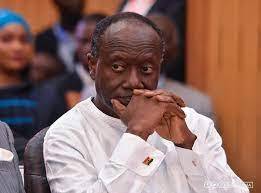The
Ghanaian government has been borrowing heavily since it came to power in 2017,
like there is no tomorrow. According to the Bank of Ghana, the country's public
debt has ballooned from about 120 billion cedis in December, 2016 to over 600 billion
cedis in 2022, which represents over 400% of the country's GDP. This means
that Ghana owes more money than it generates in a year, which is not
sustainable in the long run.
The
government has justified its borrowing spree by claiming that it needed to
finance infrastructure projects, such as roads, bridges, schools, hospitals,
and dams, to boost economic growth and create jobs. However, critics have
argued that many of these projects were not well-planned, executed, or
evaluated, and have resulted in cost overruns, delays, and quality issues. They
have also questioned the transparency and accountability of the government's
borrowing and spending practices, and warned of the risks of debt distress and
dependence on foreign creditors.
Now
that the government is facing pressure to repay its debts, it seems to be
blaming external factors, such as the Covid-19 pandemic and the Russia-Ukraine
war, for its economic woes. While these factors have indeed affected Ghana's
economy, they are not the only or primary causes of the country's debt crisis.
The government's own policies, decisions, and actions have contributed to the
debt trap that Ghana finds itself in.
For
example, the government has been criticized for its tax cuts, exemptions, and
incentives, which have reduced the revenue base of the country and favoured
some sectors and individuals over others. It has also been accused of
overspending on non-essential items, such as cars, travels, and allowances, and
neglecting critical sectors, such as health, education, and agriculture.
Moreover, it has failed to curb corruption, inefficiency, and waste in the
public sector, which has eroded the trust and confidence of the citizens and
investors.
In conclusion, Ghana's debt crisis is not just a matter of external factors, but also of internal factors that the government must acknowledge, address, and learn from. The government should stop blaming others and take responsibility for its actions, and seek to improve its governance, economy, and society in a sustainable and inclusive way. The academia should also do its part in enlightening and empowering the citizens to demand and contribute to positive change in Ghana.



No comments yet
Be the first to share your thoughts!